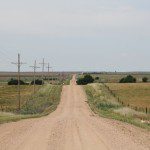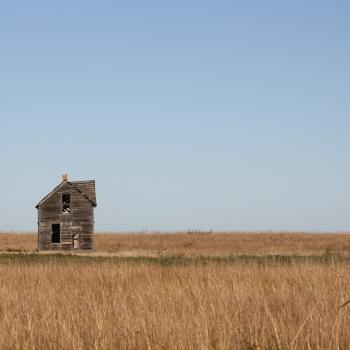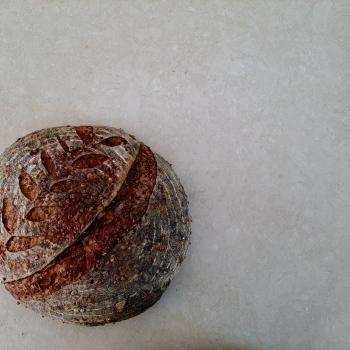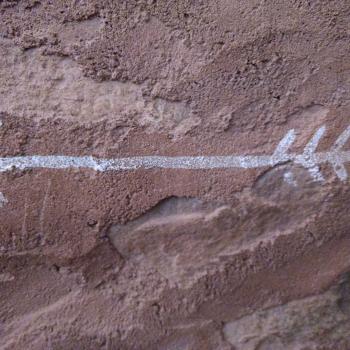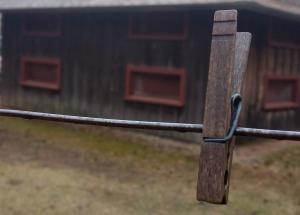
Being present where we are is one of the most underrated marks of spiritual maturity. Most of us are always dreaming for that next thing, or if we’re not, we feel like we should be. After all, rolling stones gather no moss.
I use the word “abide” to speak of how we can learn to be present in a place and with a people with intentionality and love. Jesus said, “abide in me as I in you” (John 15:4). He said that apart from him we can do nothing (15:5). He linked abiding in him with the communion meal: “Those who eat my flesh and drink my blood abide in me, and I in them” (John 6:56). To abide is to live out in some tangential way what Jesus lived out when he “put on flesh and blood and moved into the neighborhood” (John 1:14 The Message).
But abiding is tough. In my mind, abiding requires us to cultivate two practices: refreshing and resisting. We will only be able to abide in a place when we discover ways to refresh our creativity and resist the acids of place.
My grandparents had an old well in their farmyard with a long-handled red pump mounted on top. A battered tin cup hung from a twirl of wire, washed only by the rain. On hot days my brothers and I would work the pump for each other, holding the cup below the spigot as we waited for the mechanism to draw water up the shaft and propel it gushing out. We refreshed ourselves at that old well. Makes me thirsty just thinking about it.
We all have to find our way to the well. We all have to discover that subterranean, subvita source of creativity and energy and verve. What renews us? What injects hope into our lives, splashes creativity across our faces? The answer de jour is self-care: which usually means taking time to exercise and eat right and have a hobby or two. Take our minds off of work. There’s nothing wrong with that. Just ask any gardener: pulling weeds in the garden is surprisingly satisfying. But distraction is not depth. At some point, we discover that the only lasting solution is to find our way back to the well.
I suppose there may be different ways to work the pump. But the well is always the same. The water comes from one place only. It’s always about getting back to God. No surprise there. We’re going to need the spiritual disciplines Jesus’ taught: giving and prayer and fasting. We’re going to need the words of Scripture. We’ll need the bread and cup where Jesus shares himself–that oft-neglected cornerstone of discipleship–in order get a bit of snap into our lives, divine purposefulness crackling along our spines. Pop our eyelids open to God’s possibilities.
There’s a call and response at the end of the book of Revelation, voices shifting as the words advance. The Spirit and the Bride say come. And let anyone who hears say come. And let anyone who is thirsty come. And let anyone who wishes take the water of life as a gift (Revelation 22:17). I speak these words as part of my personal practice of daily prayer. It’s my way of hearing God’s calling upon my life afresh–and of petitioning God for a sip of that living water. It’s how I get back to the well. Makes me thirsty just thinking about it.
Learning to abide also requires us to resist the acids of place, the way that any place we remain in long enough pushes us away. I’m talking about that unholy boredom called acedia, listed among the seven deadly sins in the ancient catalogs. Acedia is that sense of blah, the vanity of vanities, nothing-really-matters that took hold of old Solomon (Ecclesiastes 1:2). The desert fathers named acedia a demon to be wary of and struggled against. But if acedia’s a demon, it’s a malignant, gray dust-bunny of demon–something half formless, crouching at the edge of life. The prescribed cure for acedia is to learn to see through to God’s presence in place and people, to resist by taking joy in where we’re at and in whom we’re with.
Resisting the acids of place will also require us to practice the risky, hard discipline of forgiveness–of specific individuals, of our community in general, of ourselves. Anybody who stays in a place long enough–especially if you’re seeking to lead–picks up a few scars, some of them more dignified than others. We step on somebody’s toes. One thing leads to another, and next thing you know, you no longer greet each other in the post office or give each other the wave at the intersection. (Yes, that bad).
The most straightforward thing to do is to pack up, shake the dust off your feet, and hit the road for pastures green. Fare thee well. Better luck next time.
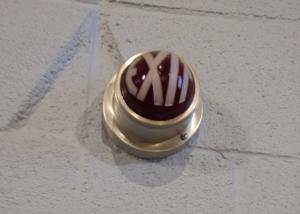
And it’s true: sometimes we need that fresh start. But so often, what we really need is the unstraightforward work of forgiveness, the subtle making-space that allows us to imagine a future where we and those we don’t get along with have a place. That can seem impossible, but as conflict transformation expert John Paul Lederach has noted, it’s “impossible until you consider the alternative, which we’ve watched now evolve in so many places across decades, half-centuries.”
In the end, abiding in a place isn’t so much about staying put. Abiding is really about being alive to God in the place we find ourselves. That’s an undertaking worthy of a lifetime, wherever we happen to end up.

